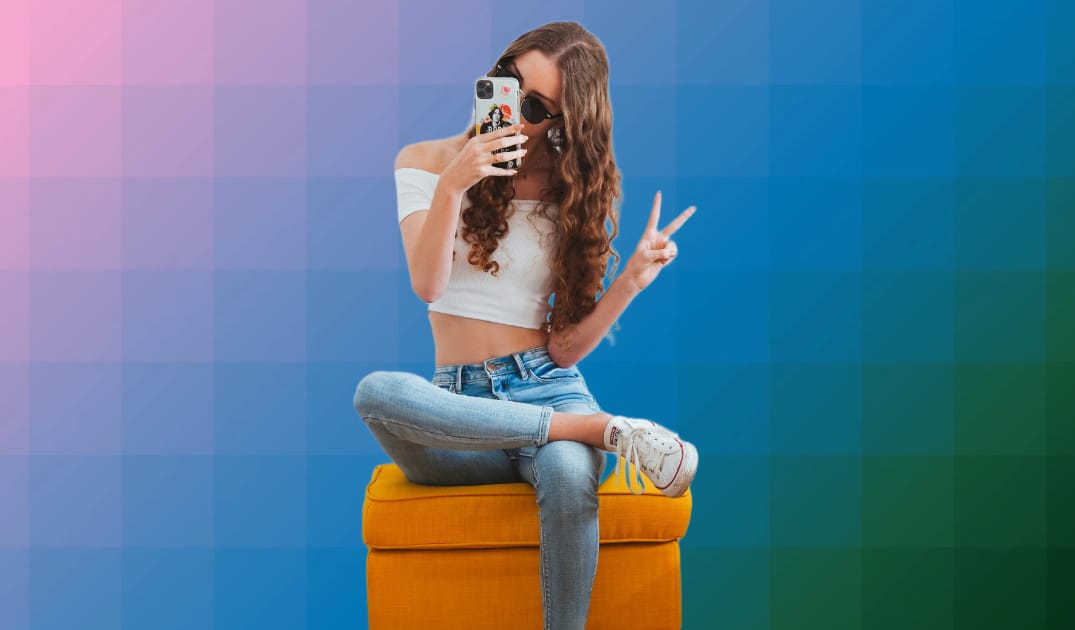The early to mid 2000s saw the rise of celebrity for the sake of celebrity, from Katie Price (or Jordan as she was better known) to Paris Hilton and Nicole Ritchie. Many of them were made hugely famous by partaking in “reality TV”, but some were just splashed in paparazzi photos everyday for inexplicable reasons. They very much existed for the sake of it, and no one really expected them to comment on important stuff, like the invasion of Iraq or the 2008 economic crash. With Instagram soon came the social media influencer, the next phase of this “famous for being famous” type of entity, people who had amassed significant social media followings and therefore had “influence” very much in the way more traditional celebrities did, but primarily via their own social media platforms.
So how do we define an influencer? Oxford Dictionary defines them as “a person with the ability to influence potential buyers of a product or service by promoting or recommending the items on social media.” Unless you have no social media and don’t interact with mainstream media more largely, you can’t really escape them. Influencers are a key tool in capitalism. We know that they are normally sprawled on the beach in Dubai or posing in a Mayfair restaurant, selling a luxury lifestyle that most of us will never reach.
As social media has subsumed more and more of our lives, there has been a development beyond just the “generic influencer” or even empty celebrity who can just stand there and look good, and push us commercial products. We have seen the rise of “the influencer activist”, someone who uses their platform to raise awareness and generate change on any issue, from veganism, to feminism, workers rights or anti-racism. The ramping up of social justice exacerbated by the pandemic (where we had no choice but to have to pay attention to social wrongs) put an unprecedented amount of social pressure on everyone with a platform to have something to say about stuff beyond their insta-worthy pictures and ASOS hauls. Suddenly people expected them to say substantive things about anti-Blackness, and other issues.
Social media has in many ways, deeply warped our perception of reality and it’s a trap that many of us including me have fallen into many times. What people are seen to be saying and talking about online, is seen as equal to real long term action and unfortunately it’s not. Whilst I understand the high emotions when we care deeply about an issue (and this was very much me during much of the last year) and we desperately want others to care, pressure piled onto people whose job it is to be superficial rarely leads to positive results. Nine times out of ten, they’ll end up sharing a meaningless hashtag, misinformation, a bland PR statement giving us absolutely nothing, or god forbid a Black square.
In the grip of a pandemic in particular, it’s been easy for us to believe social media is realer than it is, and that people “of influence” talking is the same as change. The reality is, most influencers are tools of individualism and profiteering, values which don’t really tend to translate into collective change. The very notion of being an “influencer”, someone who sits on a higher platform with the ability to influence others positively as an individual, is directly in conflict with values of collectivism and solidarity, which tend to be what creates social change. Seeing them post about issues we care about makes us feel better, as it makes us think that they care, but it rarely translates into real or effective change.
And honestly, I don’t care what Maura from Love Island has to say about the occupation of Palestine by Israel. She probably doesn’t know much about the ins and outs of the issue, and I don’t really expect her to. I don’t want her saying something empty, or misleading just so she looks like she’s trying. Many young people, particularly from marginalised communities praised Molly Mae, the influencer who does empty influencer things and… that’s it. There’s no pretence of pretending to care, which in many ways is easier to respect. There are the rare influencers like season five Love Island winner Amber Rose Gill, who has posted about serious issues in a way that feels very genuine and I admire her for it. Or Lucy Watson, the ex-Made in Chelsea Star who has veganism as a core part of her platform. But they are anomalies and we shouldn’t feel so reliant on them using their voices to see the change we want.
I understand that we all feel very powerless right now, about all kinds of deeply troubling issues. But if history teaches us anything, it’s not a few individuals at the top “with power” who make a difference. It’s everyone else working in solidarity that creates real movements for change. Social media can still be a useful tool to organise, and be a springboard for wider action. But the power to make change doesn’t reside in your favourite celebrity or influencer- it’s in all of us working together. And that’s something to be hopeful about.
Thanks for reading our article! We know young people’s opinions matter and really appreciate everyone who reads us. Give us a follow on Instagram, Twitter and Facebook to stay up to date with what young people think.

